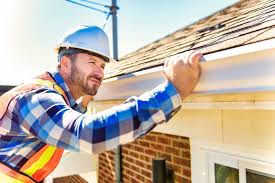Roof warranties give homeowners peace of mind, knowing they are protected against certain failures or defects. However, filing a claim and ensuring it is honored can often be complex. One critical factor in whether a roof warranty claim is accepted is the history of regular inspections and maintenance. With this, many claims may be allowed. We will explore how roofing inspections impact warranty claims and why consistent inspections are essential for homeowners and roofing companies to uphold the warranty terms.
Importance of Regular Roofing Inspections
Hyde Park regular roofing inspections are not just routine maintenance; they serve as a preventive measure that can significantly impact the longevity of your roof and the validity of your warranty. Most roofing warranties include provisions that require the homeowner to maintain the roof through inspections performed by qualified professionals. Failing to adhere to this can void the warranty, meaning any damage or defects that could have been covered may no longer be eligible. Inspections can help identify potential issues, such as damaged shingles, leaks, or worn-out flashing, that could worsen over time. These problems may seem minor initially, but without timely repairs, they can escalate into significant issues that are costly to fix.
Moreover, inspections provide an official record proving that the homeowner has upheld their end of the warranty agreement. Roofing manufacturers or contractors may request this documentation if a claim is filed. Proof of consistent inspections is necessary to dismiss a claim, even if the warranty covers the damage. Therefore, scheduling regular roofing inspections helps extend the roof’s life and ensures that any warranty claims can be substantiated with proper maintenance records.
Common Reasons for Denial of Warranty Claims
Neglect or improper maintenance is one of the most frequent reasons a roofing warranty claim is denied. Roof warranties generally cover manufacturing defects or specific types of material failures. However, if the roof needs to be properly maintained, the manufacturer or contractor can argue that neglect contributed to the issue, thereby disqualifying the claim. Inspections are a proactive way to demonstrate that any problems were not due to neglect but external factors or product defects. For example, a warranty might not cover damage caused by environmental factors such as storms or animals, but inspections can document pre-existing conditions, potentially supporting the claim.
Another common issue that leads to denied warranty claims is improper installation. Many roofing warranties are conditional upon the roof being installed by certified or approved contractors. Regular inspections help catch installation problems early before they void the warranty entirely. For instance, if an inspection finds that certain roof areas were not properly sealed, the homeowner can address the issue before it leads to more extensive damage. Without such inspections, any resulting problems might be attributed to poor installation, often not covered by warranties.
Additionally, some warranties have clauses that limit coverage to specific time frames or conditions. For example, a warranty might only cover leaks caused by manufacturing defects if the roof has been maintained regularly. If inspections aren’t conducted and documented, any subsequent damage may be attributed to poor upkeep, and the claim could be denied. Thus, regular inspections protect homeowners against claims denials due to these technicalities.
The Role of Roofing Contractors in Warranty Claims
Roofing contractors are crucial in the warranty claims process, especially regarding inspections. Most roofing warranties require that licensed professionals carry out inspections and repairs. Contractors who perform these inspections are responsible for identifying and documenting any damage or potential issues that could affect the validity of a claim. This documentation is crucial because manufacturers or warranty providers often review these records before processing a claim.
Additionally, contractors can guide when and how often inspections should be conducted to meet warranty requirements. Some warranties specify that annual or bi-annual inspections are necessary, while others may only require inspections after significant weather events like storms or high winds. A contractor’s expertise is invaluable in ensuring the roof is properly maintained according to the specific terms of the warranty.
Furthermore, roofing contractors can help homeowners navigate the often-complicated process of filing a warranty claim. They can inspect the roof after a problem arises and provide a detailed report explaining the damage’s cause, whether it was a defect or wear and tear. This professional insight helps clarify the situation, making it easier for homeowners to present their case to the warranty provider. In many cases, the contractor can communicate directly with the manufacturer or warranty company on behalf of the homeowner, streamlining the claims process and ensuring that all the required documentation is provided.
Roofing inspections are pivotal in ensuring that warranty claims are accepted and that homeowners get the most out of their warranties. Regular inspections help identify potential problems early, document the roof’s condition, and provide the necessary proof of maintenance that many warranties require. They also help avoid common reasons for claims denials, such as neglect or improper installation. In addition to impacting warranty claims, inspections extend the roof’s life, increase property value, and offer peace of mind for homeowners. By prioritizing regular roofing inspections, homeowners can protect their investments and avoid costly repairs or replacements in the future.
